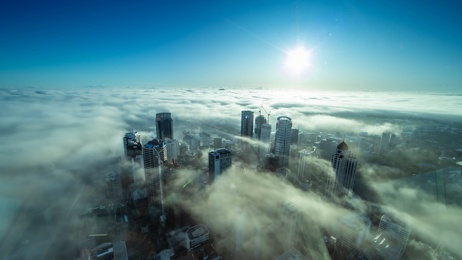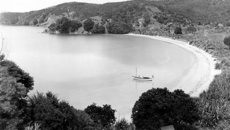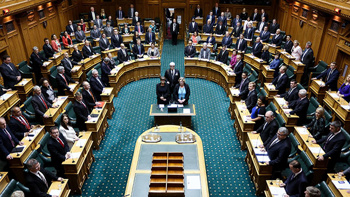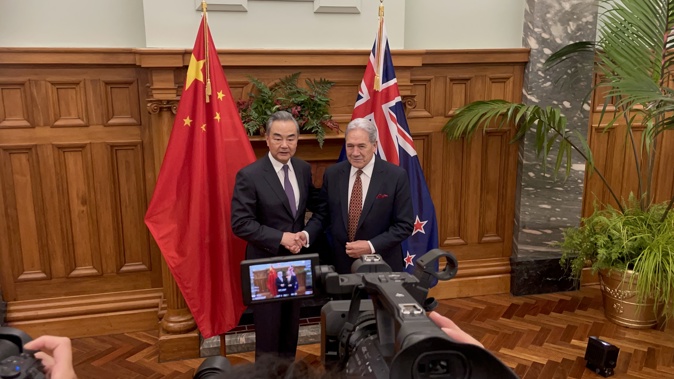
Wang Yi’s visit to New Zealand is not accidental.
The Chinese Foreign Minister came here in response to New Zealand’s all-too-evident difficulty in navigating the turbulent currents of contemporary geopolitics. He was here to help. New Zealand’s Foreign Minister, Winston Peters, was having none of it. To Wang’s nostalgic recollections of past Sino-New Zealand harmony, and the distressing contrast these presented with what Wang sees as New Zealand’s regrettable shadowing of the United States’ current policies, Peters responded with uncharacteristic bluntness.
“He did raise Aukus with me, and I pointed out the right of countries to organise their defence arrangements if they had concerns about the need to have such arrangements, and that I did not expect him to think that what our views were, our concerns were, could be conceived as being imaginary.”
Peters’ blunt riposte confirms his tight grasp of geopolitical realities, and the farsightedness of his diplomatic vision. No matter how vital the People’s Republic of China may be to New Zealand’s continuing prosperity, the drift of world events is certain to sunder the two nations – and most probably sooner, rather than later. In effect, the Americans are asking their Anglophone allies the crucial question of the geopolitical moment: “If not the USA and Europe – then who?”
The West’s geopoliticians understand what, for the most part, their fellow citizens do not – that the era of uncontested Western hegemony (1500-2000CE) is coming to an end. The 50-year rise of China – from prostrate to upright giant. The brutal intransigence of Putin’s Russia. The rapid economic expansion of India. The opportunism of the Arab oil states. The ambition of Iranian theocrats. The number of pieces on the geopolitical chessboard have multiplied dramatically since the Red Queen vs the White Queen binary of the Cold War.
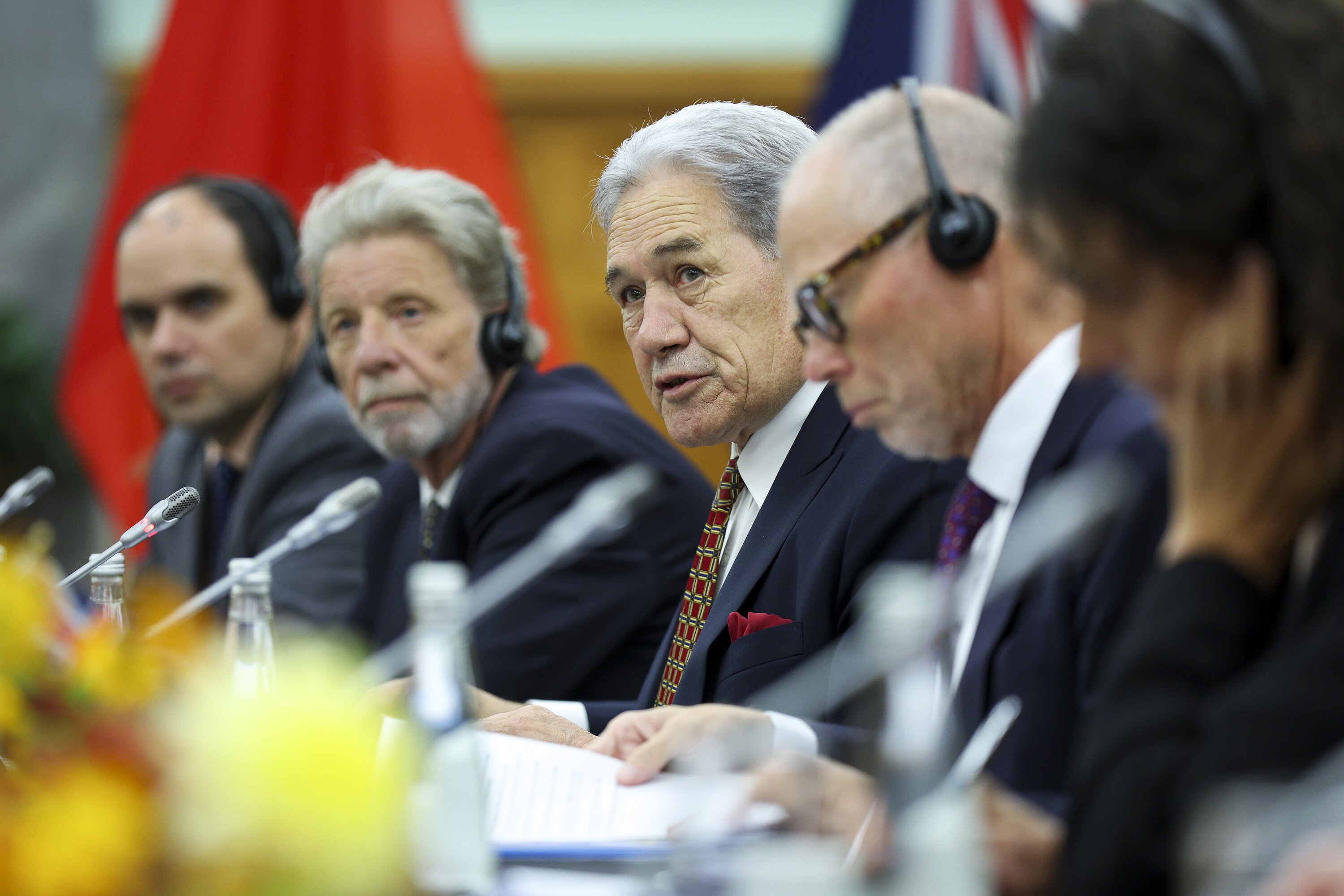
The multiplication of global players also signals the demise of the era of neoliberal globalisation. That brief, 30-year period between the collapse of the Soviet Union and the onset of the Covid-19 Pandemic, turned out to be the highwater mark of capitalism’s uncomplicated and largely uncontested advance across the planet. Those who loudly declared an end to history and the demise of the nation state turned out to be a little premature in their celebrations. History and Nationalism ain’t dead yet!
Nor is the West. Though constituting barely 10 per cent of the global human population, the Western peoples command the lion’s share of the planet’s wealth. Their economies are the most sophisticated, their industries the most advanced, and their military forces the most to be feared. These “mosts” will not be surrendered lightly. But, if they are to be successfully defended, then the Western states will be required to make some large and uncomfortable sacrifices.
New Zealand’s Foreign Minister gets this. His far-from-imaginary concerns are currently centred upon the strategic price of retaining free access to Chinese markets, and how New Zealand’s willingness to pay that price is likely to be interpreted in the capitals of the Anglosphere.
Mildly positive statements about “Pillar Two” of the Aukus Pact have prompted Foreign Minister Wang to wax lyrical about the good old days, and how important it is not to put the relationship between Wellington and Beijing at risk. The Chinese Ambassador to New Zealand, Wang Xialong, has a more trenchant analysis. This was his view in July, 2023:
“While staying in the bubbles of a bygone era might give people a false sense of comfort or security, it will not solve their problems, nor will it enable them to grasp the opportunities of the present, let alone to embrace the future.”
New Zealand’s traditional “friends” (and “Five Eyes” partners) are in little doubt as to the meaning of Wang Xialong’s observation.
Having an inoffensive Western nation in tow, especially one with impeccable liberal-democratic credentials, is diplomatically advantageous for China. What’s more, being in a position to make Wellington’s connection with Beijing worthwhile, economically speaking, is not a point of leverage to be abandoned lightly. Encouraging New Zealand to maintain what the Politik website’s proprietor, Richard Harman, calls “strategic ambiguity” vis-à-vis China and the West is clearly in Beijing’s interest.
But not in the West’s interest.
The longer China’s economic relationship with New Zealand is allowed to influence the latter’s foreign policy, the greater the risk that, eventually, it will come to dictate it. That is why the Anglophone states and, behind them, the EU and Nato, are so concerned to see New Zealand reaffirm, unequivocally, its status as a Western nation. Any other arrangement would throw a very large strategic spanner in the Indo-Pacific’s geopolitical machinery.
Won’t this necessitate an enormous economic sacrifice on New Zealand’s part? It certainly will. And, if the Western states have any sense, they will risk the ire of their domestic producers by taking up at least some of the slack occasioned by China’s withdrawal of economic support. But, even if such generosity proves to be politically impossible, New Zealand should still bite the bullet. It is long past time that we fashioned ourselves an economy devoted to something slightly more sophisticated than endlessly transforming grass into milk and meat. Quite apart from anything else, it would be the making of us.
Peters hints at this in his (now infamous) State of the Nation address of March 17: “Look overseas at the successful economies of the Nordic countries, or like Singapore, Taiwan, or Ireland... Many of these countries are small or have few natural resources at all. But they all have an economic plan where their people are their number one resource. Where education is critical, where they employ incubators for innovation and social mobility, where they have taxation incentives for real business growth to attract investment into the right areas, and where their primary focus of expenditure is on wealth creation, production and exports, not consumption – or ‘here today gone tomorrow’.”
Peters’ economic nationalism is not a new development. Thirty years ago, the NZ First leader was probably the only New Zealand politician with the works of Friedrich List sitting on his library shelves. List was a 19th-century German economist whose ideas underpinned his country’s transformation from pastoral backwater to industrial behemoth. Like List, Peters has always favoured “hands-on” above laissez-faire economics.
That this is the way the West is heading will become clearer with every passing year. So much so that, in just a few decades, the only things that will distinguish the West from the other great combinations of economic, military and diplomatic power, will be its ancient traditions of Rationalism, the Rule of Law, Democratic Government and Individual Liberty.
It’s what takes the geopolitical question: “If not the USA and Europe – then who?” Such a no-brainer for Australians and New Zealanders. Theirs may be the “last and loneliest” outposts of the West, but outposts they must remain.
Take your Radio, Podcasts and Music with you



